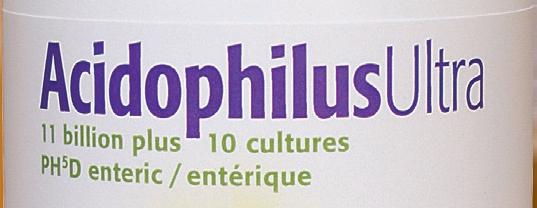
4 minute read
HEALTH
Food and compassion
NUTRISPEAK Vesanto Melina MS, RD
Advertisement
You have just dined and however scrupulously the slaughterhouse is concealed in the graceful distance of miles, there is complicity. – Ralph Waldo Emerson
HUMANS ARE magnificent creatures capable of achieving great heights. Although at times less than obvious, there is much goodness in humankind. Never before in history has any species invested so much time in helping other creatures. We love others. We try to remedy injustice. We feed peoon there. Occasionally, while driving, we may see the eyes of a calf being trucked to its death, but, otherwise, livestock being transported to the slaughterhouse pass us by, unnoticed. After skinning, cutting, packaging, roasting and covering it with gravy, there’s hardly a trace in our steak or drumstick of the animal’s origins. Incongruously, in our children’s picture books, animals lead happy, peaceful lives.
With a little research, we soon discover that killing animals for food is completely unnecessary for anyone’s nourishment;
because we like how they taste.
ple and we help dolphins washed ashore return to the sea. We do our best to be good. We care. We share. We value kindness, justice, truth, altruism, tenderness, generosity, compassion, love and service. When we’re good, we’re really good. And we can rightly be proud of ourselves.
At the same time, we often act like heartless barbarians – especially towards animals. Each year in the Faroe Islands, the sea turns red from the traditional slaughter of 3,000 to 4,000 whales. People pay big bucks to hunt the amazing wildlife of Africa and Canada. Animals are mistreated for our amusement. When Tyke, a circus elephant in the US, had enough and escaped, police shot him down in the street. But above all, we kill 60 billion animals every year because we like how they taste.
Our treatment of animals is inconsistent with the values we deem important. In our minds, this creates confusion and disconnection. While all animals are equally capable of feeling pain, we treat companion animals differently from pigs, chickens or cows. We credit our beloved puppy or cat with feelings and awareness, while denying the existence of such qualities in those our culture has labelled “food animals.” A kitten trapped for days in a container or a mistreated pony merit headlines. Concerned citizens then lunch on lamb or veal.
Along with our confusion, we carry a burden of guilt. Our behaviour towards animals becomes more difficult to maintain as we learn how complex, intelligent and sensitive all animals can be.
We choose to hide the evidence. We don’t know where slaughterhouses or animal factories are located or what goes in fact, research shows meat to be detrimental to our health. Meat-centred diets increase our risk of cardiovascular disease, diabetes and obesity and raise the risk of colon cancer by 50 percent. To avert these calamities, we then subject “lab” animals to medical experimentation in attempts to discover how to overcome such chronic diseases, without changing our habits.
Most important, perhaps, is the emotional disconnection that occurs when we kill or eat animals. We must suppress our compassion and then keep such feelings far from our consciousness. Many children, however, recognize the link between the meat on their plate and the living animals they have seen on country excursions or in picture books. In such cases, the child may be hushed and told that there is no problem at all: the animal was born to be killed for meat; it had a good life; it didn’t suffer. With such actions, the child’s empathy is stifled.
Shifting to a more plant-based diet takes a little time and know-how, but it is well worth it.
For veggie meetings and events, see www.meetup.com/Vancouver-MeatlessMeetup and www.earthsave.ca
For vegetarian restaurants in Vancouver and elsewhere, see www.vegdining. com/Home.cfm and www.happycow.net
Vesanto Melina is a dietitian, consultant and author. Visit www.nutrispeak.com Call 604-882-6782. Tobias Leenaert was instrumental in Ghent, Belgium, implementing Veggie Day on Thursdays. This government-supported choice is being acknowledged internationally. www. vegetarisme.be/index.php?option=com_ content&view=article&id=766





Why choose Acidophilus Ultra

Boosts, stimulates and fortifies your immune system. Cleans, µ
protects, and replenishes your gastrointestinal system while aiding digestion
Contains 10 stronger, smarter, complementary probiotics / µ
11 billion per capsule
Each probiotic culture administers a special benefit, each at a µ
unique site along the intestines


Can be taken before, with or after meals as the special PH µ 5 D enteric coating will only open in your small intestines; other probiotics not properly protected are destroyed
240 hours of testing and research every week. Our full-time laboratory is staffed with 1 PhD, 3 MSc and 2 BSc All ingredients tested 3 times for identity, purity, PCBs, heavy metals, potency, 37 pesticides, aflatoxins, and microbiology











